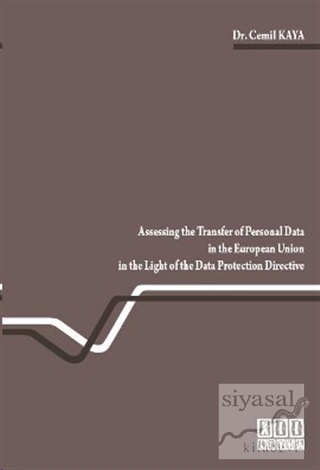
The issue of the transfer of personal data is important, especially regarding the safeguarding of personal privacy. To secure personal pri–vacy, inter alia, the European Union adopted a binding directive in 1995 known as the "Protection of Individuals with Regard to the Processing of Personal Data and on the Free Movement of Such Data". Affecting not only ali Member States but also third countries, the Directive set the main outlines for transferring personal data.
Under the Directive; personal data transfers to a third country are subject to a special regime determined by whether an adequate level of protection exists in this country, bound by certain limited exemptions. in contrast, in the Directive there is no special regime for the transfer of personal data from one Member State to another since Member States are deemed to provide an adequate level of protection.
The purpose of this study is to examine the provisions of the Directive on the transfer of personal data. The Directive, in general, sought to achieve harmonization of data protection laws of ali Member States, but it is doubtful whether this has been achieved. The research shows that different practises stili exist in Member States on the transfer of personal data, and the Directive provisions have not been successful in complete harmonization.
The issue of the transfer of personal data is important, especially regarding the safeguarding of personal privacy. To secure personal pri–vacy, inter alia, the European Union adopted a binding directive in 1995 known as the "Protection of Individuals with Regard to the Processing of Personal Data and on the Free Movement of Such Data". Affecting not only ali Member States but also third countries, the Directive set the main outlines for transferring personal data.
Under the Directive; personal data transfers to a third country are subject to a special regime determined by whether an adequate level of protection exists in this country, bound by certain limited exemptions. in contrast, in the Directive there is no special regime for the transfer of personal data from one Member State to another since Member States are deemed to provide an adequate level of protection.
The purpose of this study is to examine the provisions of the Directive on the transfer of personal data. The Directive, in general, sought to achieve harmonization of data protection laws of ali Member States, but it is doubtful whether this has been achieved. The research shows that different practises stili exist in Member States on the transfer of personal data, and the Directive provisions have not been successful in complete harmonization.























